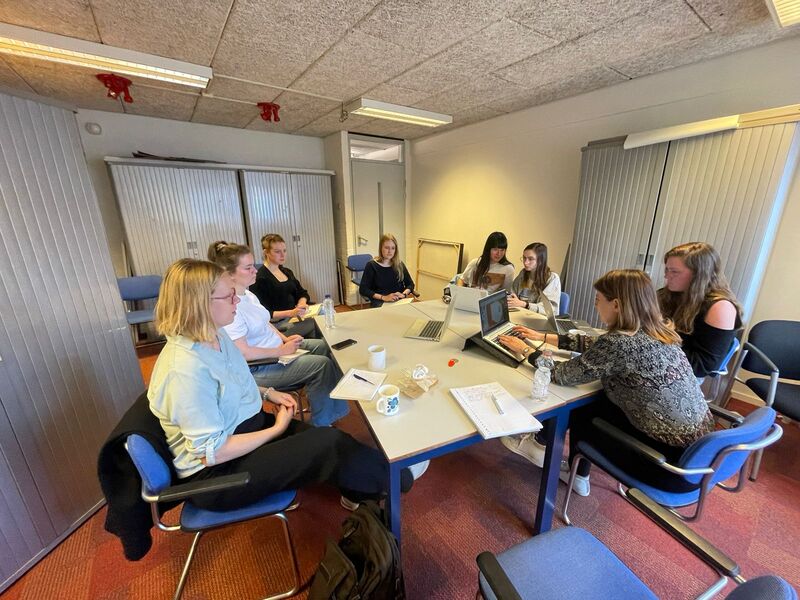Fugitive coproduction: Conceptualising informal community practices in Scotland's hospitals. A presentation by Dr. Ellen Stewart
Anastasia Stoli
PhD Researcher
Jun 7, 2022
On June the 1st, Dr. Ellen Stewart kindly agreed to give an online presentation of her recently published article titled “Fugitive coproduction: Conceptualising informal community practices in Scotland’s hospitals”. Dr. Stewart is a social scientist, currently working at the university of Strathclyde in Glasgow, Scotland, as a Chancellor’s Fellow and Senior Lecturer on Social Work and Policy. As a scholar, she has engaged with a variety of topics, including medical sociology, health policy and public administration. Her work has an interdisciplinary character and her insights on informal practices and community participation in matters of health are of great relevance to the InPart project, as well as to scholars focusing on daily, mundane, ad-hoc practices through which people engage with matters of concern.
During this fruitful presentation, and after, in its subsequent discussion, participants included not only members of the InPart project, but also other researchers from the department, at different stages in their careers and focusing on a broad variety of projects. Dr. Stewart provided extensive insights on her understanding of coproduction as an ‘exploratory social space’, a space where informal, community-initiated actions contribute to matters of healthcare. She focuses on a particular type of coproduction, which she terms ‘fugitive’ to denote the transient and elusive character of these practices.. These practices emerge in times of need, occur outside of official rules, and are only briefly visible, if at all. They are informal in nature and cooperative - practices employed by community members, patients and local medical staff - with the objective of producing particular forms of care that formal regulation (in this case, the NHS) does not provide.
Dr. Stewart’s research raises questions related to openness and impact when it comes to public participation in matters of collective concern. In the case studies she presented, informal practices co-produced hospitals and care in a largely invisible manner. In this case, invisibility does not indicate obscurity - hospital gardening projects, day services and weekly support meetings were all done within hospital grounds, with local staff and community members participating. And yet, the participants performed these informal practices outside of the spotlight of formal regulation. In fact, once the NHS discovered these informally-run weekly meetings, it attempted to discontinue them. In another case study, an informally-run group raised substantial amounts of money to save the hospital from closure, which led to internal discussions and fragmentation as to what they should best invest the money in. In this case, their visibility and heightened public profile led to their demise. Their impact to the community and hospital hinged on their invisibility, as formal intervention assumed a damaging character. This same invisibility that allowed them to operate, then, concealed their role as co-producers of hospital care (social care).
Dr. Stewart’s work highlights the existence of alternative forms of participatory practices; a matter of great interest to scholars focusing on participatory practices in conditions where participants are discouraged from doing so. These participatory practices can be mundane, partly hidden or purposefully apolitical. They are resilient in their distribution, capable of flourishing under hostile circumstances where such participation is discouraged. Their informal character allows them to contribute to alternative forms of public participation whose formal recognition remains limited. Building upon Dr. Stewart’s insights and research previously conducted by Artur, it became clear how important the space in which informal practices unfold can be for the meaning these practices can acquire. This also raises important issues about the possibility to research such practices and the practical arrangements that need to be in place for it. The dialogue between Dr. Stewart and the participants further emphasised the need to pay attention to the ways in which agency is constructed and distributed through informal practices, as different actors may come to play different roles, leading to differences in standing and authority. Recognizing these informal practices for their valuable contribution to matters of collective concern without formalising them is the objective of the InPart project and the reason why research such as the one Dr. Stewart conducted is of great importance to us.
